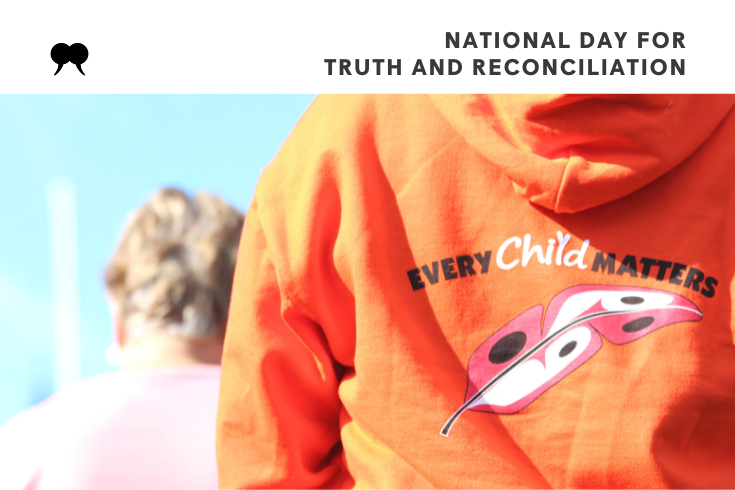
In 2021, the government of Canada passed legislation to make September 30 a federal statutory holiday called the National Day for Truth and Reconciliation. The day marks a public commemoration of the impact of residential schools on Indigenous peoples as well as an opportunity to honour the history of Indigenous communities in Canada.
The Truth and Reconciliation Commission called for the creation of a holiday as one of its ninety-four calls to action. September 30 was earlier recognized as Orange Shirt Day before being elevated to a statutory public holiday.
While it is not considered a provincial public holiday, we at The Walrus recognize the National Day for Truth and Reconciliation as a holiday, allowing our staff, partners, and audience to take the time to learn about the legacy of residential schools—a tragic part of Canada’s history—whose impact continues to be felt by Indigenous peoples today, especially with the discovery of unmarked graves on residential-school sites across the country as well as with the revelations of survivors’ experiences at these locations. This is also a time to reflect on the current treatment of Indigenous communities, including the disappearance and murder of Indigenous women, girls, and Two-Spirit people (MMIWG2S), such as the case of Barbara Kentner.
Several institutions and organizations across the country will be marking September 30 with commemorative activities. At The Walrus, we encourage our audience to explore the stories written and shared by our speakers and contributors.
Listen to Chief Cadmus Delorme, who spoke at “The Walrus Talks What’s Next?” in Toronto about the future of reconciliation. Watch Stephen Buffalo, President and CEO of the Indian Resource Council of Canada, who discussed how First Nations communities are preparing for net-zero emissions in Canada, and also Candice Shaw’s talk about how colonialism creates poverty by design.
We have the pleasure of working with many Indigenous writers, such as Cody Caetano, who wrote about how to approach Indigenous memoirs, and Stacey Taylor, who wrote about how being an Indigenous archeologist is a very personal experience for her. Jesse Wente also provided an excerpt from his book Unreconciled: Family, Truth, and Indigenous Resistance about truth before reconciliation.
As we continue to partner with First Nations, Métis, and Inuit leaders and storytellers, as well as with Indspire, our national education partner, we invite our community to take the time not only on the National Day for Truth and Reconciliation but throughout the year to learn more about and from Indigenous communities.
You can find more stories written and illustrated by Indigenous contributors on our website and hear from esteemed speakers on our YouTube channel.







